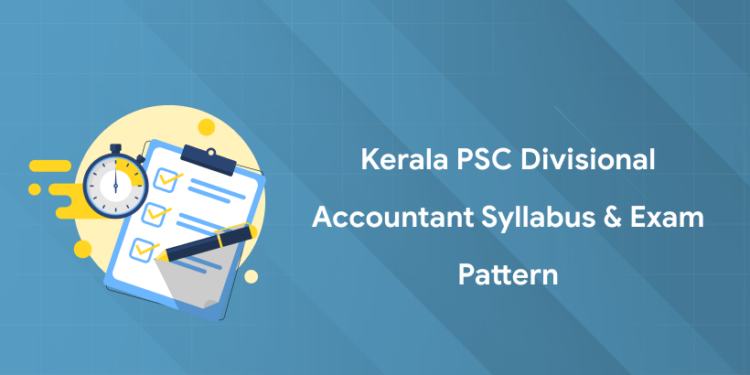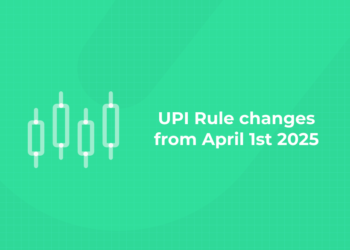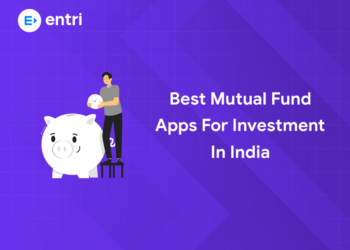Table of Contents
Kerala PSC conducts the Divisional Accountant exam to recruit candidates for financial roles in various government departments. As the exam approaching, a clear understanding of the syllabus and exam pattern is essential for effective preparation. This guide covers the Kerala PSC Divisional Accountant Syllabus & Exam Pattern 2025 in detail. Download the PDF below for a structured study approach.
Kerala PSC Divisional Accountant Syllabus and Exam Pattern Overview
| Conducting Body | Kerala PSC |
| Post Name | Divisional Accountant |
| Category Number | 724/2024, 775/2024 |
| Type of Exam | OMR |
| Total Marks | 100 |
| Number of Questions | 100 |
| Medium of Questions | Malayalam/ English |
| Exam Duration | 3 Hours for Each papers |
| Type of Exam | Descriptive |
| Official Website | https://www.keralapsc.gov.in/ |
Kerala PSC Divisional Accountant 2025 Exam Date
1: Which Year First Assembly Election was held in Kerala?
The Kerala PSC Divisional Accountant 2025 exam is scheduled to be held on May 10, 2025 (Saturday). Candidates who wish to appear for the exam must confirm their participation between February 20, 2025, and March 11, 2025 through the official Kerala PSC portal. The admit cards for the exam will be available for download from April 26, 2025 onwards. It is essential for candidates to complete the confirmation process within the given period to ensure eligibility for the examination.
Enroll in Kerala's Top-rated Kerala PSC Coaching Program!
സർക്കാർ ജോലി എന്ന സ്വപ്നം ഇനി സ്വപ്നം മാത്രമല്ല! Join Entri's Kerala PSC Coaching Programs
Join Now!Kerala PSC Divisional Accountant Exam Pattern 2025
The Kerala PSC Divisional Accountant exam consists of two stages: Preliminary and Mains.
Preliminary Exam Pattern
- Paper 1: 100 Marks | 90 Minutes
- Paper 2: 100 Marks | 90 Minutes
Mains Exam Pattern
- Paper 1: 100 Marks | 3 Hours
- Paper 2: 100 Marks | 3 Hours
- Paper 3: 100 Marks | 3 Hours
Marks obtained in the Mains Exam are considered for the final merit list.
| Subject | Marks |
|---|---|
| General Knowledge and General English | 30 |
| Elementary Book Keeping | 30 |
| Arithmetic & Mensuration (Elementary but Practical) | 40 |
Kerala PSC Divisional Accountant Syllabus 2025 PDF
The Kerala PSC Divisional Accountant exam covers key topics in finance, accounting, and general studies. Download the Kerala PSC Divisional Accountant Syllabus 2025 PDF below to get the detailed subject-wise syllabus and start your preparation.
Kerala PSC Divisional Accountant Syllabus 2025: Detailed
The Kerala PSC Divisional Accountant exam covers topics in General Studies, Accountancy, and Kerala Governance. The syllabus includes financial management, auditing, and current affairs. Go through the detailed syllabus now!
TOTAL MARKS – 100
PART – I – A – GENERAL KNOWLEDGE (15 MARKS)
1. Kerala
- Arrival of Europeans and their contributions
- History of Travancore from Marthanda Varma to Sree Chithira Thirunal
- Social and Religious Reform movements
- National movement in Kerala
- Literary Sources of Kerala History
- United Kerala Movement
- Political and Social History of Kerala after 1956
2. India
- Medieval India – Political History and Administrative Reforms
- Contributions of rulers
- Establishment of the British Empire
- First War of Independence
- Formation of Indian National Congress
- Swadeshi Movement
- Social Reform Movements
- Role of Newspapers, Literature, and Art during the freedom struggle
- Independence Movement and Mahatma Gandhi
- Extremist Movement in India
- India’s Independence and Post-Independence Period
- State Reorganization
- Developments in Science, Education, and Technology
- Foreign Policy
- Political History after 1951
3. World
- Great Revolutions:
- English Revolution
- American War of Independence
- French Revolution
- Russian Revolution
- Chinese Revolution
- Political History after the Second World War
- UNO and other International Organizations
GEOGRAPHY (2 Marks)
1. Basics of Geography
- Earth Structure
- Atmosphere
- Rocks and Landforms
- Pressure Belts and Winds
- Temperature and Seasons
- Global Issues – Global Warming and Pollution
- Maps – Topographic Maps and Signs
- Remote Sensing and Geographic Information System (GIS)
- Oceans and their movements
- Continents and their specific features
2. India
- Physiography and states
- Northern Mountain Region and Rivers
- Northern Great Plain
- Peninsular Plateau
- Coastal Plains
- Climate and Natural Vegetation
- Agriculture, Minerals, and Industries
- Energy Sources
- Transport Systems – Road, Water, Rail, Air
3. Kerala
- Physiography and districts
- Rivers and Climate
- Natural Vegetation and Wildlife
- Agriculture and Research Centers
- Minerals and Industries
- Energy Sources
- Transport Systems – Road, Water, Rail, Air
ECONOMICS (2 Marks)
- National Income and Per Capita Income
- Factors of Production
- Economic Sectors of Production
- Indian Economic Planning – Five-Year Plans, NITI Aayog
- Types and Functions of Economic Institutions
- Reserve Bank of India and its Functions
- Public Revenue – Tax and Non-Tax Revenue
- Public Expenditure and Budget
- Fiscal Policy
- Consumer Protection and Rights
CIVICS (2 Marks)
- Public Administration – Bureaucracy, Features, and Functions
- Indian Civil Service and State Civil Service
- E-Governance
- Information Commission and Right to Information Act
- Lokpal & Lokayukta
- Government Structure – Executive, Judiciary, Legislature
- Elections and Political Parties
- Human Rights and Human Rights Organizations
- Acts and Rules related to Consumer Protection
- Watershed Management, Labour and Employment Policies
- National Rural Employment Policies
- Land Reforms
- Protection of Women, Children, and Elderly
- Social Welfare and Social Security
- Socio-Economic Statistical Data
INDIAN CONSTITUTION (2 Marks)
- Constituent Assembly
- Preamble
- Fundamental Rights and Duties
- Directive Principles of State Policy
- Citizenship
- Constitutional Amendments
- Panchayati Raj
- Constitutional Institutions and their Functions
- Emergency Provisions
- Union List, State List, and Concurrent List
ARTS, SPORTS & LITERATURE (2 Marks)
Arts
- Important Audio-Visual Art Forms of Kerala
- Famous Places, Institutions, Personalities, and Artists
- Development and Practice of Art Forms
Sports
- Famous Sports Personalities of Kerala, India, and the World – their achievements and awards
- Important Awards – Corresponding Fields and Winners
- Famous Trophies and Related Events
- Number of Players in Important Sports
- Important Terms associated with Various Sports and Games
- Olympics – Basic Facts, Venues, Countries, Famous Performances, and Personalities
- Asian Games, Afro-Asian Games, Commonwealth Games, SAF Games – Venues, Countries, and India’s Performance
- National Games
- Games – Events, Players, Achievements
- National Sports/Games Events of Various Countries
Literature
- Malayalam Literary Movements and their Icons
- Main Literary Works and Authors
- Writers – Pen Names and Nicknames
- Famous Works and Characters
- Famous Quotes – Books and Authors
- Beginning of Journalism in Kerala – Pioneers, Journals, and Publications
- Famous Awards and Honors – Writers and their Works
- Malayalam Writers who won the Jnanpith Award
- Malayalam Cinema – Origin, Development, Milestones, and National Awards
Culture
- Kerala – Important Celebrations, Festivals, and Places
- Cultural Centers, Worship Places, Cultural Leaders, and their Contributions
BASICS OF COMPUTER (2 Marks)
Hardware
- Input and Output Devices – Names and Uses
- Memory Devices – Primary and Secondary
Software
- System Software and Application Software
- Operating Systems – Functions and Examples
- Popular Application Software – Word Processors, Spreadsheets, Databases, Presentation, Image Editors
- Basics of Programming – Input, Output, Store, Control Transfer
Computer Networks
- Types of Networks – LAN, WAN, MAN
- Network Devices – Media, Switch, Hub, Router, Bridge, Gateway
Internet
- Services – WWW, Email, Search Engines
- Social Media – Examples and Features
- Web Designing – Browsers, HTML (Basics)
Cyber Crimes and Cyber Laws
- Types of Cyber Crimes (Awareness Level)
- IT Act and Other Laws (Awareness Level)
SCIENCE AND TECHNOLOGY (1 Mark)
1. Science and Technology
- Nature and Scope of Science and Technology
- National Policy on S&T and Innovations
- Basics of Everyday Science
- Human Body and Public Health
- Food and Nutrition
- Healthcare
- Institutes and Organizations in India Promoting Science and Innovation
- Contributions of Prominent Indian Scientists
2. Technology in Space and Defense
- Evolution of Indian Space Programme
- ISRO – Activities and Achievements
- Various Satellite Programmes
- DRDO – Vision, Mission, and Activities
3. Energy Requirement and Efficiency
- India’s Existing Energy Needs and Deficit
- Renewable and Non-Renewable Energy Resources
- Energy Policy of India
- Government Policies and Programs
- Energy Security and Nuclear Policy
4. Environmental Science
- Issues and Concerns Related to the Environment
- Environmental Laws, Policies, and Treaties
- Sustainable Development and Biodiversity
- Climate Change – International Initiatives and India’s Commitments
- Western Ghats – Features, Characteristics, and Issues
- Forest and Wildlife Conservation Laws
- Environmental Hazards, Pollution, Carbon Emission, and Global Warming
- Developments in Biotechnology, Green Technology, and Nanotechnology
PART – I – A – GENERAL KNOWLEDGE (15 Marks)
| Topic | Subtopics |
|---|---|
| Kerala History | Arrival of Europeans, Contributions of Europeans, History of Travancore (Marthanda Varma to Sree Chithirathirunnal), Social & Religious Reform Movements, National Movement in Kerala, Literary Sources of Kerala History, United Kerala Movement, Political & Social History after 1956 |
| Indian History | Medieval India (Political History, Administrative Reforms, Contributions), Establishment of British Rule, First War of Independence, Formation of INC, Swadeshi Movement, Social Reform Movements, Newspapers, Literature & Art during Freedom Struggle, Independent Movement & Mahatma Gandhi, Extremist Movements, Post-Independence Period (State Reorganization, Developments in Science, Education, Technology, Foreign Policy, Political History after 1951) |
| World History | Great Revolutions (England, American War of Independence, French, Russian, Chinese), Political History after WWII, UNO & Other International Organizations |
| Geography (2 Marks) | Earth Structure, Atmosphere, Rocks, Landforms, Pressure Belts, Winds, Temperature, Seasons, Global Issues (Pollution, Global Warming), Maps & Topographic Signs, Remote Sensing, GIS, Ocean Movements, Continents & Countries |
| Indian Geography | Physiography, States & Features, Mountains, Rivers, Plains, Plateaus, Coastal Regions, Climate, Natural Vegetation, Agriculture, Minerals, Industries, Energy Sources, Transport (Road, Water, Rail, Air) |
| Kerala Geography | Physiography, Districts & Features, Rivers, Climate, Natural Vegetation, Wildlife, Agriculture & Research Centers, Minerals, Industries, Energy Sources, Transport (Road, Water, Rail, Air) |
| Economics (2 Marks) | National Income, Per Capita Income, Factors of Production, Indian Economic Planning (Five-Year Plans, NITI Aayog), Economic Institutions, RBI & Functions, Public Revenue (Tax & Non-Tax), Budget, Fiscal Policy, Consumer Protection |
| Civics (2 Marks) | Public Administration, Bureaucracy, Civil Services, E-Governance, RTI, Lokpal & Lokayukta, Government Structure (Executive, Judiciary, Legislature), Elections, Political Parties, Human Rights, Consumer Protection, Labour Laws, Social Welfare Policies |
| Indian Constitution (2 Marks) | Constituent Assembly, Preamble, Fundamental Rights, Directive Principles, Duties, Citizenship, Amendments, Panchayati Raj, Constitutional Institutions, Emergency Provisions, Union-State-Concurrent Lists |
| Arts, Sports & Literature (2 Marks) | Kerala’s Audio-Visual Art Forms, Important Places & Personalities, Sports Personalities & Events, Major Awards & Trophies, Olympics, Commonwealth Games, National Games, Malayalam Literary Movements, Writers & Works, Journalism, Cinema Development, Cultural Celebrations & Festivals |
| Basics of Computer (2 Marks) | Hardware (Input, Output, Memory Devices), Software (System & Application), Operating Systems, Programming Basics, Networks (LAN, WAN, MAN, Devices), Internet (WWW, Email, Search Engines, Social Media), Cyber Crimes & Laws |
| Science & Technology (1 Mark) | Science & Tech Policies, Indian Space & Defense, Energy Policies, Environmental Science (Pollution, Climate Change, Biodiversity, Legal Aspects), Developments in Biotechnology, Nanotechnology |
PART – I – B – ENGLISH LANGUAGE (15 Marks)
| Subdivision | Topics | Marks |
|---|---|---|
| Noun | Singular/Plural, Countable/Uncountable, Abstract, Possessive | 3 Marks |
| Tense | Present Simple, Present Perfect, Simple Past, Past Perfect, Irregular Verbs | 4 Marks |
| Verbs | Phrasal Verbs, Auxiliary/Modals, Adverbs, Active/Passive Voice, Reported Speech | 4 Marks |
| Others | Pronouns, Adjectives, Prepositions, Idioms & Phrases, Jumbled Sentences | 4 Marks |
PART – II – ELEMENTARY BOOK KEEPING (30 Marks)
| Module | Topics | Marks |
|---|---|---|
| Module 1 | Book Keeping up to Trial Balance: Introduction to Accounting, Need, Importance, Limitations, Journal, Ledger, Trial Balance, Rectification of Errors | 3 Marks |
| Module 2 | Trading, Profit & Loss Account, Balance Sheet, Adjusting, Opening & Closing Entries | 3 Marks |
| Module 3 | Depreciation, Sinking Fund, Reserves, Reserve Fund, Secret Reserve | 3 Marks |
| Module 4 | Bill of Exchange, Promissory Notes, Cheques, Types & Endorsements | 3 Marks |
| Module 5 | Voyage Account: Important Terms (Freight, Primage, Passage Money, Port Charges, Stevedoring, Incomplete Voyage) | 3 Marks |
| Module 6 | Self-Balancing Ledgers: Meaning, Objectives, Control Accounts | 3 Marks |
| Module 7 | Capital & Revenue Accounts, Receipts & Payments, Income & Expenditure | 3 Marks |
| Module 8 | Manufacturing & Working Accounts, Cost Book of Mining Companies | 3 Marks |
| Module 9 | Cost Accounts: Classification, Labour & Material Costing, Overheads, Job & Process Costing, Batch & Contract Costing | 3 Marks |
| Module 10 | Double Account System: Meaning, Features, Difference from Single Account System, Clear Profit, Disposal of Surplus | 3 Marks |
Total: 100 Marks
PART – III: Arithmetic and Mensuration (40 Marks):
PART – III – Arithmetic and Mensuration (40 Marks)
| Module | Topics |
|---|---|
| Module 1 | Number System: Factors and multiples, cyclicity, divisibility, remainders, prime and composite numbers. Real numbers – rational and irrational numbers, decimal representations, Division algorithm, Fundamental theorem of arithmetic. |
| Module 2 | Polynomials: Degree, Classification, Remainder theorem, Factor theorem, Division algorithm for polynomials, Zeros and coefficients of a polynomial. |
| Module 3 | Quadratic Equations: Roots, Methods for finding roots (Factorization, Completing the square, Quadratic formula), Nature of roots, Relation between roots and coefficients. |
| Module 4 | System of Linear Equations in Two Variables: Methods (Graphical, Substitution, Elimination, Cross multiplication), Conditions for solvability. |
| Module 5 | Squares and Square Roots, Cubes and Cube Roots: Methods for finding square roots and cube roots. |
| Module 6 | Arithmetic Progression: Basic concepts, General term, Sum of an arithmetic progression. |
| Module 7 | Profit, Loss, and Discount: Problems related to profit, loss, and discount. |
| Module 8 | Ratios and Proportions: Problems related to ratios and proportions. |
| Module 9 | Percentage: Important concepts, Successive changes in percentage. |
| Module 10 | Simple and Compound Interest: Problems related to simple and compound interest. |
| Module 11 | Statistics: Definitions, Frequency distribution, Cumulative frequency distribution, Graphical representation (Bar graph, Histogram, Frequency polygon), Arithmetic mean. |
| Module 12 | Mathematics in Commerce: Shares, Trading in shares, Dividends, Debentures, Banking (Saving, Current, Recurring, Fixed accounts), Sales tax, and Value-added tax. |
| Module 13 | Circles: Secant and tangent, Area of a segment, Angles in alternate segments, Cyclic quadrilaterals, Area of a sector, Applications of area related to circles, Circumference. |
| Module 14 | Triangles and Quadrilaterals: Types of triangles and quadrilaterals, Properties, Midpoint theorem, Area, Perimeter, Pythagoras theorem, Angles. |
| Module 15 | Solids: Surface area and volume of solids. |
| Module 16 | Similar and Congruent Triangles: Problems related to similarity and congruence. |
| Module 17 | Trigonometry: Angle of elevation and depression, Problems on height and distance, Trigonometric ratios, Trigonometric identities. |
| Module 18 | Coordinate Geometry: Distance between two points, Internal and external division, Centroid, Incenter, Straight lines – Various forms. |
| Module 19 | Time, Speed, Distance, and Work: Problems related to time, speed, distance, and work. |
| Module 20 | Sets: Description of sets, Types of sets, Venn diagram, Operations on sets. |
Enroll in Kerala's Top-rated Kerala PSC Coaching Program!
സർക്കാർ ജോലി എന്ന സ്വപ്നം ഇനി സ്വപ്നം മാത്രമല്ല! Join Entri's Kerala PSC Coaching Programs
Join Now!How to Download Kerala PSC Divisional Accountant Syllabus 2025
- Visit the Kerala PSC Home Page
- Go to the Recruitment section
- Click on Post-Wise Syllabus
- Select Divisional Accountant Syllabus
- Click the Download button
- Save the PDF for future reference












